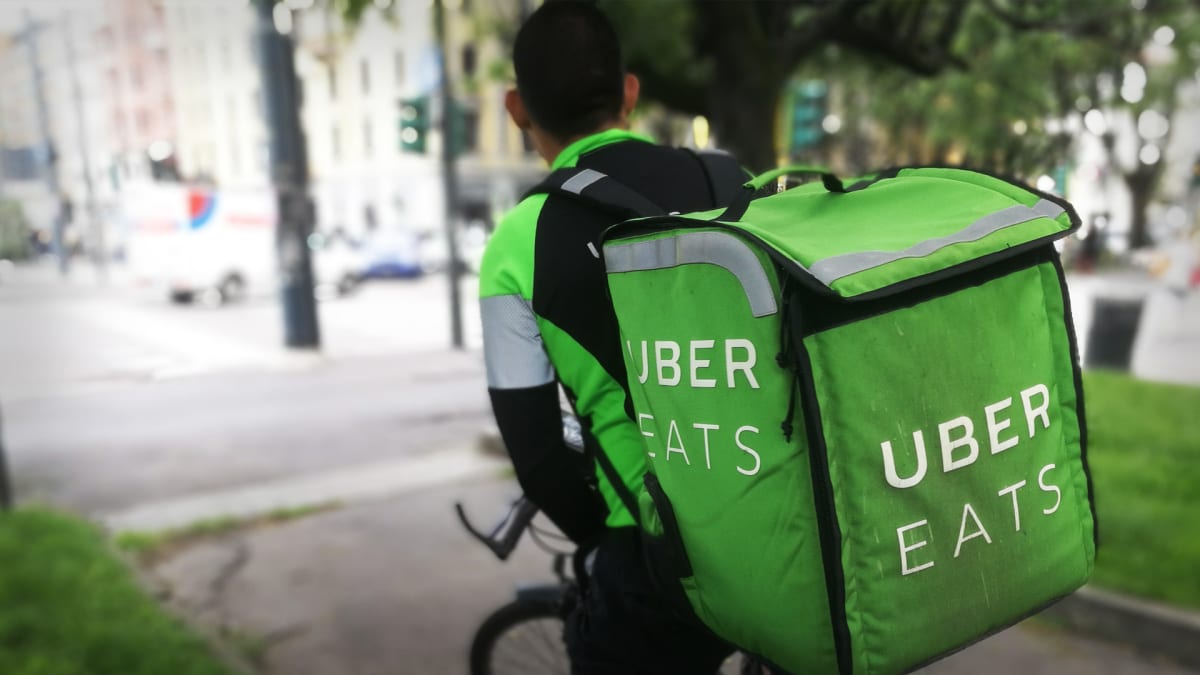
On April 10, a seven-year-old boy and a 19-year-old girl died in a fire that ripped through a two-story brick home in the New York City neighborhood of Astoria, Queens.
The blaze was sparked by an electric bike, according to New York City Fire Department officials, who noted that there have been 59 fires caused by lithium-ion batteries this year, with five people losing their lives.
DON'T MISS: 'Shark Tank' Star Kevin O'Leary Has an Urgent Message for Business Owners
"If this was not an e-bike fire, most likely, we would've been able to put this fire out without incident," John Hodgens, the FDNY's chief of department, said at a press conference, Spectrum News NY1 reported. "But the way these fires occur, it is like an explosion of fire, and these occupants have very little chance of escaping."
In response to these incidents, New York enacted a ban in March against the sale of any e-bikes without a certification from Underwriters Laboratories.
Trading in Old E-Bikes
And now Uber (UBER) is funding a new program that aims to get electric bikes with non-certified lithium-ion batteries off New York's streets.
The ride share company partnered with the e-bike company Zoomo and The Equitable Commute Project, a coalition of NYC non-profits, academic institutions, and businesses, on a pilot program where delivery workers will be able to trade in older e-bikes for credit to invest in a new e-bike and access rent-to-own pricing models and priority repairs and services.
A study conducted by WXY Studios and commissioned by Uber, cities and regions globally have witnessed a significant increase in demand for micromobility vehicles, including e-bikes and e-scooters since the onset of the COVID-19 pandemic in March 2020.
Over 65,000 of New York’s app-based food delivery workers rely on e-bikes, most of which run on low-priced, substandard lithium-ion batteries, the report said.
A representative from Los Deliveristas Unidos (LDU), a NYC-based advocacy organization for delivery workers, asserted that almost “all of the e-bikes delivery workers in the city use come from the same factory in China”, the study said.
Safer E-Bikes for Delivery Workers
E-bikes ordered directly from factories in China or from online sites like Alibaba are often low-priced models of substandard quality built from an amalgamation of often incompatible or nonstandard materials.
The high costs of UL-certified e-bikes make them less accessible for lower-income communities, feeding an underground market of unsafe, cheaply made, e-bikes with incompatible or uncertified parts.
“Delivery workers should not have to choose between making a living and safety," Josh Gold, Uber’s senior director for public policy, said in a statement. "These innovative partnerships will help get safer e-bikes into the hands of delivery workers.”
“By providing discounts and exchange opportunities for new UL certified e-bikes and certified lithium-ion batteries," Gold added, "the expensive price tag that too often acts as a blocker to safety should no longer have to be a concern.”
New York City Mayor Eric Adams said “this program to increase access to safe and certified e-bikes and batteries for our delivery workers is a welcomed complement to our ‘Charge Safe, Ride Safe’ plan to keep New Yorkers safe from lithium-ion battery fires, and we appreciate Uber stepping up to the plate to help in a major way.”







